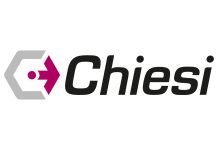
Defence Therapeutics Inc. has announced a significant milestone in its radio-immuno-conjugates project.
The Canadian Nuclear Research Initiative Health (CNRI-H) Program application by Defence Therapeutics has been approved by the Canadian Nuclear Laboratories (CNL), facilitating the acceleration of their innovative research.
Focus of the CNRI-H project
The CNRI-H project by Defence Therapeutics will concentrate on the synthesis and evaluation of novel constructs, specifically variations of 111In-AccuTOX®-Trastuzumab.
The primary aim is to establish that the AccuTOX® moiety is a crucial enhancement to conventional 111In-Trastuzumab constructs.
This modification is designed to avoid endosome entrapment and ensure nuclear localisation, where 111In will emit Auger Electrons (AEs) to destroy cancer cells. Additionally, AccuTOX® will unleash its immune-boosting properties, creating a synergistic effect.
Development and testing
Selected AccuTOX® constructs will be assessed based on their stability, solubility, and biochemical properties.
These constructs will be conjugated to the trastuzumab antibody, radiolabeled with 111In, and characterised both in vitro and in vivo to determine their effectiveness in targeting and killing cancer cells.
The ultimate goal is to identify a biologically active 111In-AccuTOX®-Trastuzumab molecule that demonstrates higher potency against solid tumours resistant to current HER2-targeting therapies, such as therapeutic antibodies (e.g., trastuzumab) and antibody-drug conjugates (e.g., Kadcyla®).
The collaborative project aims to:
- Synthesise and Characterise: Develop AccuTOX®-Trastuzumab antibody conjugates, radiolabel them with 111In, and conduct structural and cellular analyses. This includes identifying drug-antibody ratios, specific activity, stability, and cytotoxic effects in vitro.
- In Vivo Studies: Perform animal studies in rodents to evaluate biodistribution, pharmacokinetic profiles, and therapeutic potency of selected 111In-AccuTOX®-Trastuzumab constructs.
Sebastien Plouffe, CEO of Defence Therapeutics, commented: “We are proud to have this opportunity to collaborate with the Canadian Nuclear Laboratories and to advance Defence’s radio-immuno-conjugates program for the benefit of the cancer’s patients.
“The CNL scientific team dedicated to our project is very strong and will definitely accelerate and reinforce Defence’s strength in this renowned and fast-growing radiopharmaceuticals field.”
About the CNRI-H Program
The CNRI-H program by CNL is designed to contribute to the health of Canadians by providing financial support and expertise to the healthcare community.
This program aims to advance new life-saving radiopharmaceutical solutions by integrating funding and project execution.
The ultimate goal is to optimise the production of therapeutic isotopes and facilitate the clinical translation of targeted radiopharmaceuticals, thereby enhancing the safety and efficacy of therapies involving radiopharmaceuticals for the benefit of Canadians.
In summary, the CNRI-H program approval marks a pivotal step for Defence Therapeutics, enabling them to accelerate their radio-immuno-conjugates project and potentially offer new, potent treatments for cancer patients.









